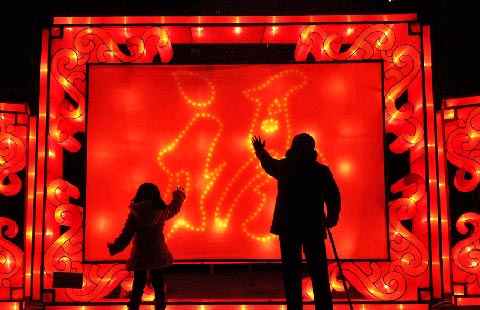West aims to minimise nuclear bomb risk
Updated: 2014-02-14 20:40
(Agencies)
|
|||||||||||
KEY QUESTION
"The key question for us is what kind of breakout time we can accept," said a diplomat on one of the six powers' negotiating teams, speaking on condition of anonymity.
Extending that "breakout time", experts and diplomats say, means Iran would have to restrict enriching uranium to a low fissile concentration, stop a large number of its centrifuges now used for such work, limit nuclear research, and submit to highly intrusive monitoring by UN inspectors.
Ahead of the February 18 start of the talks in Vienna, a defiant President Hassan Rouhani pledged that peaceful atomic research would be pursued "forever".
Tehran wants an end to the sanctions that have battered its economy, mainly US and European Union bans on its oil sales. Western states are wary of giving up this leverage too soon.
"They are going to start this negotiation very far apart and it's hard to speculate on what the end state's going to be," Robert Einhorn, a former top US State Department official on Iran, said last month.
"But to be acceptable to the United States, Iran for a substantial amount of time ... is going to have to live with a very limited enrichment capacity."
The talks coordinated by European Union foreign policy chief Catherine Ashton aim to build on a deal last November under which Iran agreed to halt some of its most sensitive work for six months, in return for modest sanctions relief.
That accord, made possible with last year's election of Rouhani on a platform to ease Iran's international isolation, was designed to give the sides confidence that a broad agreement is possible. It left the biggest challenges for later.
Related Stories
US to deal harshly with violators of Iran sanctions 2014-02-12 10:57
Iran 'successfully' test-fires ballistic missile 2014-02-11 10:23
UN agency says Iran probe needs more work 2014-02-10 16:52
Iran agrees on seven 'practical steps' with IAEA 2014-02-10 09:27
Iran says warships sailing toward US to protest Persian Gulf build-up 2014-02-10 08:03
Today's Top News
4 die in Austrian train-car crash
China spends billions on rural education
Plan drafted for $36b undersea tunnel
Rural reform needs science input
Service gives hope to bereaved parents
China's IPOs raise nearly $5 billion
Policy may alter migration route
US envoy meets India's Modi
Hot Topics
Lunar probe , China growth forecasts, Emission rules get tougher, China seen through 'colored lens', International board,
Editor's Picks

|

|

|

|

|

|





